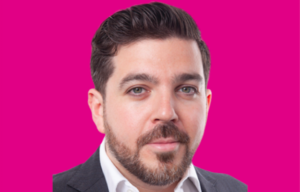You only have to turn on the news for 10 minutes and you will hear the word “disruption”.
Whether referring to the terrible disruption caused to the everyday lives of millions of people in quarantine or the more routine “disruption on the London Underground”, it is rarely a good thing.
So, why has this word become a euphemism for something positive in financial services? asks Mark Sanderson, chief operating officer UK & International at Praemium.
Tomayto, tomahto?
This idea has troubled me for a while, so I did what I’ve always done when I am unsure… I asked my mum.
Trust, Security, Honest, Easy, Safe, Reliable… she gave me lots of words to describe what she is looking for from the financial services institutions that serve her.
But disruption?
“Absolutely not!”
So, I got to thinking about what financial services businesses actually mean when they use the word disruption, and I came to the conclusion that the word they are looking for is not disruption, but “innovation”.
So why not say innovation?!
The innovation stalemate
According to respected platform commentator and consultancy The Lang Cat, the total AUM on advised platforms in the UK amounts to £400bn ($492.5bn, €453bn), with over £308 billion (78%) being run on just three, most likely soon to be two, technology platforms.
This means that less than a quarter of all UK platform assets (£92bn) are run on proprietary systems.
The thing is, advisers are smart, they are aware, and they are nervous.
Almost half of all advisers surveyed in the Lang Cat’s State of the Adviser Nation 2019 said they had at least some concerns over the merging of two of the UK platform market’s main technology providers.
The problem with the merger is that it creates a duopoly, and with a duopoly comes a severe disincentive to innovate.
One firm may tailor R&D to serve a niche segment to avoid intense price competition, but neither is going to risk straying too far from business as usual.
Unfortunately, lack of competition means lack of innovation.
Development gives way to maintenance.
So, what can a platform operator which relies upon one of these two monoliths for their technology do?
They can’t differentiate on features: everyone has the same thing.
They could try to differentiate on service, but isn’t good service a minimum requirement for platforms and financial services businesses writ large?
They could rely on brand for differentiation, but then they are asking advisers to boil down one of the most critical decisions they will make, who their primary platform provider will be, to “do I want a green one, a yellow one or a blue one?”
So, what does a platform do to differentiate?
They compete on price.
They make it cheap, but they can’t call it cheap because that sounds, well, cheap.
So, they call it “disruption”.
The rise of the (proprietary) machines
There is a small cohort of platform technology firms that are challenging the status quo.
Praemium is leading that charge but we are not alone.
What unites this group of “challenger” platforms is that we lead with our technology.
We understand that technology is the best way to deliver better outcomes, not just for investors but for the people who look after them.
Everyone who has ever purchased a smart phone knows that it is obsolete pretty much as soon as you’ve left the shop.
Technology that doesn’t constantly evolve and find new ways of solving new problems is simply not fit for purpose.
We aren’t building duopolies; we are building reliable technology, artificial intelligence robots and smart interfaces that change the way investors and their advisers engage.
And if ever we needed a case study, is now not the perfect one?
Traditional financial services businesses who rely on paper, post, and people at desks in glass and steel buildings to answer the phone, simply cannot function in this environment.
Some have even shut down their phone lines or stopped receiving applications altogether.
That’s the right decision to protect their people and their communities, but that doesn’t help my mum when she needs to receive her pension.
What should advisers do?
A very good friend of mine always says, fFintech makes no sense. Tech is fin, and fin is tech”.
He’s right.
There is no longer a line between financial services and technology, but a symbiosis which allows each to advance beyond what was previously thought possible.
That kind of mutualism is deep, long lasting, and causes rapid evolution.
Now advisers have a real choice.
They can stick with platforms whose underlying technology is a cheap commodity, or they can work with next-generation platforms that are technology partners, that help them grow and face the challenges of our ever-evolving financial services landscape.
This article was written for International Adviser by Mark Sanderson, chief operating officer UK & International at Praemium.
Sanderson was featured in the latest edition of the IA100.








